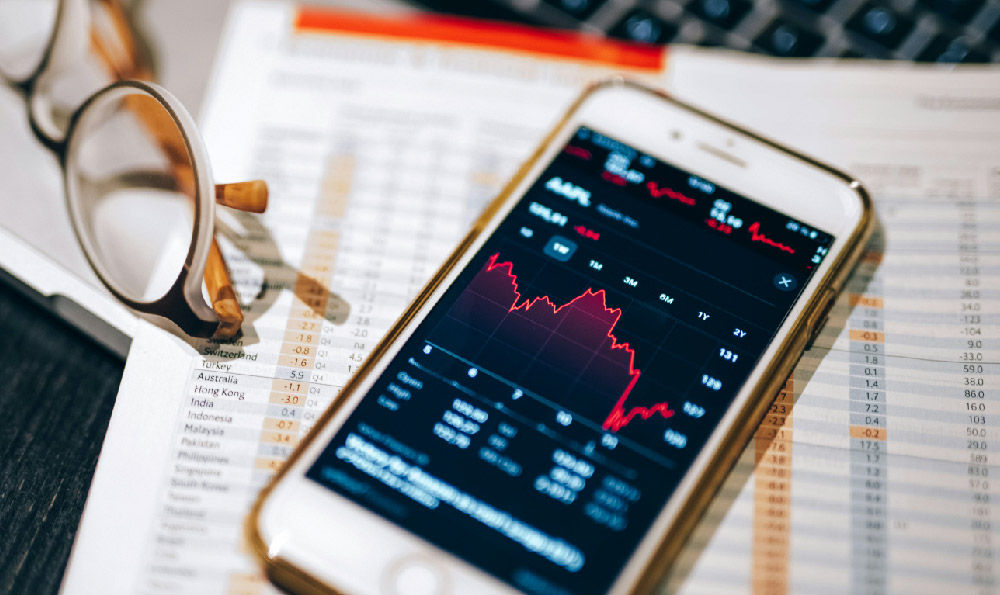Where to Invest in Gold? & Why Should I?

Gold, often revered as a safe-haven asset, has captivated investors for centuries. Its intrinsic value, scarcity, and historical performance during times of economic uncertainty make it a compelling addition to a well-diversified portfolio. However, the allure of gold begs two fundamental questions: Where is the best place to invest in gold, and why should one consider doing so? Let's delve into these questions, exploring various avenues for gold investment and outlining the compelling reasons to allocate a portion of your assets to this precious metal.
When considering investing in gold, several avenues are available, each with its own set of advantages and disadvantages. One of the most straightforward options is the acquisition of physical gold. This can take the form of gold bars, coins, or jewelry. Investing in physical gold provides a tangible asset that you can hold and control. However, it also comes with its own set of challenges. Storage is a primary concern. You'll need to ensure secure storage, either through a home safe or a safety deposit box at a bank, both of which incur costs and potential risks. Insurance is also necessary to protect against theft or damage. Furthermore, the spread between the buying and selling price of physical gold, known as the premium, can be significant, impacting your potential returns. Finally, physical gold lacks liquidity compared to other investment options. Selling requires finding a reputable buyer, and the process can be time-consuming.
Another popular option is investing in gold Exchange-Traded Funds (ETFs). Gold ETFs are investment funds that track the price of gold and allow investors to buy and sell shares representing ownership of physical gold held in the fund's vaults. Gold ETFs offer several advantages over physical gold ownership. They are highly liquid, meaning you can easily buy and sell shares on the stock exchange. They also eliminate the need for secure storage and insurance, as the fund manager takes care of these logistics. Furthermore, the expense ratios associated with gold ETFs are generally lower than the premium you would pay on physical gold. However, gold ETFs do come with some drawbacks. You don't actually own the physical gold, but rather a share representing a portion of it. This means you're relying on the fund manager to properly manage the gold holdings. Additionally, ETFs are subject to market volatility, and their price can fluctuate based on investor sentiment.

Another avenue is investing in gold mining stocks. Gold mining stocks represent ownership in companies that explore, develop, and mine for gold. Investing in these stocks can offer leverage to the price of gold. When the price of gold rises, the profits of gold mining companies can increase substantially, leading to higher stock prices. However, gold mining stocks are also riskier than gold itself. The performance of these companies depends on various factors, including their mining operations, exploration results, management expertise, and geopolitical risks in the regions where they operate. Furthermore, gold mining stocks are subject to the overall market volatility and can be affected by factors unrelated to the price of gold. Carefully researching and selecting individual gold mining companies is crucial to mitigate these risks.
A fourth option to explore is gold futures contracts. Gold futures contracts are agreements to buy or sell gold at a predetermined price on a specific future date. Futures contracts are traded on commodity exchanges and can offer significant leverage. This means that a small investment can control a large amount of gold. However, futures contracts are highly speculative and carry substantial risk. The price of gold futures can be volatile, and losses can exceed your initial investment. Futures contracts also require active management and a deep understanding of the gold market. They are generally suitable for experienced investors with a high risk tolerance.
Now, let's address the question of why you should consider investing in gold. Gold has historically served as a hedge against inflation. When inflation erodes the purchasing power of fiat currencies, the price of gold tends to rise, preserving wealth. This is because gold is a scarce asset with limited supply, while fiat currencies can be printed at will by central banks. During periods of economic uncertainty, such as recessions, geopolitical crises, or financial market turmoil, investors often flock to gold as a safe-haven asset. The demand for gold increases, driving its price upward. This makes gold a valuable asset to hold during times of market stress. Gold is a tangible asset with intrinsic value. Unlike stocks or bonds, which are based on the performance of companies or governments, gold has inherent value that is not dependent on the actions of any particular entity. This makes it a reliable store of value over the long term. Gold can act as a portfolio diversifier. Its price often moves independently of other asset classes, such as stocks and bonds. By adding gold to your portfolio, you can reduce overall portfolio volatility and improve risk-adjusted returns.
In conclusion, the decision of where to invest in gold depends on your individual investment goals, risk tolerance, and time horizon. Physical gold provides tangible ownership but comes with storage and liquidity challenges. Gold ETFs offer a liquid and convenient way to gain exposure to gold. Gold mining stocks offer leverage but carry higher risks. Gold futures contracts are highly speculative and suitable for experienced investors only. Regardless of the chosen method, allocating a portion of your portfolio to gold can provide a hedge against inflation, a safe-haven asset during economic uncertainty, a tangible store of value, and portfolio diversification benefits. Understanding the various avenues for gold investment and the reasons why one should consider it is crucial for making informed decisions and achieving your financial goals. Always conduct thorough research and consult with a qualified financial advisor before making any investment decisions.















